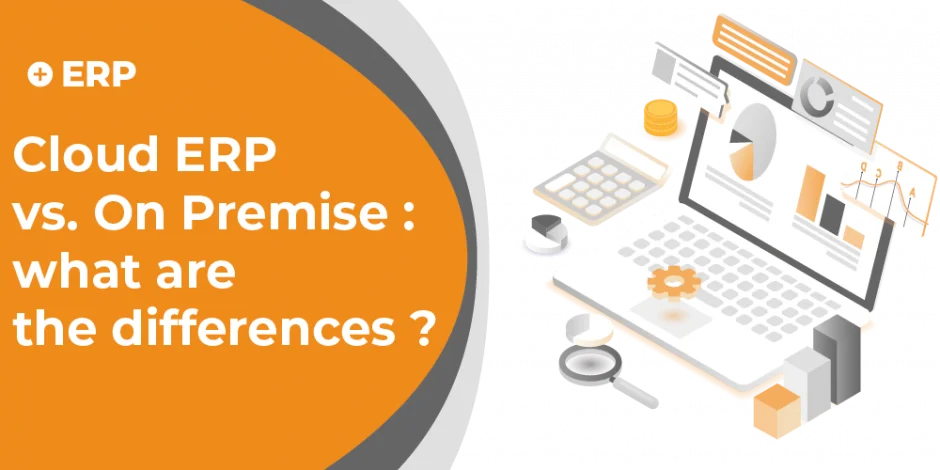Cloud ERP vs. On-Premise ERP: what are the differences?
Every company that wants an ERP solution for its business has to face an essential choice: Cloud ERP on On-Premise ERP. Executives and managers will need some guidance to understand the difference between cloud ERP and On-Premise ERP but specially to find the solution that suits them best.
06 June 2022
What is an ERP used for? Why is it useful in business? What is the difference between cloud ERP and On-Premise ERP? What are the factors to consider when choosing an ERP solution?
What is an ERP?
What is called an ERP or Enterprise Resource Planning is also known as an integrated management software package. We can find it in several companies as an essential tool. This computerized tool enables the company to be managed within a single software package and with reference to a single database. Accounting, sales management, stock management and much more can be handled by an ERP.
Several characteristics define an ERP from another software such as:
- The fact that it comes from a single software publisher
- Real-time updating of information
- The uniqueness of the information thanks to a common data base for the different modules
- Traceability of operations carried out
- Complete coverage of the company’s information system
Why is an ERP necessary in a company?
Before tackling the question of cloud ERP vs. On-Premise ERP, it is important to understand why a software package is essential in a company.
The first advantage of ERP is that it is a single software package that allows for the homogenization of practices and exchanges between departments. This saves time and improves the understanding and information traceability. The use of different modules enables management by several departments of the company while improving communications.
Indeed, by using the same data base, updated in real time means that everyone can rely on the same sources of information, which avoids making mistakes.
Indeed, ERP is a highly modular software package that can be designed entirely to measure. It can also be adapted precisely to the company needs.
Cloud or On-Premise ERP?
When it comes to ERP, there are two choices for companies wishing to install this type of tool: cloud ERP or On-Premise ERP. Indeed, the difference between a cloud ERP and On-Premise ERP is significant and must therefore be understood.
Cloud ERP
Cloud ERP can also be called SaaS (Software As A Service). This means that it is provided as a service by the ERP supplier such as Sage X3. It means that the software and the associated company data stored in it will be stored in the supplier’s cloud. The cloud is thus external to the company and managed by the supplier’s staff. It is accessible on the Internet via a web browser.
On-Premise ERP
On-Premise ERP is ERP software that is installed locally on the company’s hardware and servers. Centralized on site, it therefore requires adequate facilities and structure, as well as IT staff to carry out the administration and maintenance. A company that does not have this possibility will not be able to access an On-Premise ERP.
How to choose between these two solutions?
Since we defined cloud ERP and On-Premise ERP, it is important to know which is more interesting when comparing ERP cloud and On-Premise ERP.
A difference in costs
The cost will not be the same depending on the choice of an ERP cloud or On-Premise ERP. As mentioned above, the On-Premise solution requires specific installations and adapted support for the management. It is thus an important initial investment. The cost of the cloud version is much more affordable and easier to anticipate as it is often set up as a subscription.
Upgrades and improvements
Another difference between ERP Cloud and On-Premise ERP is how the software will be updated and enhanced. The On-Premise version allows you to customize your solution. However, each update proposed by the software publisher will require the customization to be re-configured. Thanks to the cloud version, we always have the latest version of the software.
Deployment’s speed
The speed of deployment also includes a difference in the duel between cloud ERP and On-Premise ERP. The deployment of the software will often be faster in the cloud version since the On-Premise version also requires the implementation of a specific infrastructure.
There are therefore several differences between cloud ERP and On-Premise ERP. Each company has to consider these features before making its choice.
